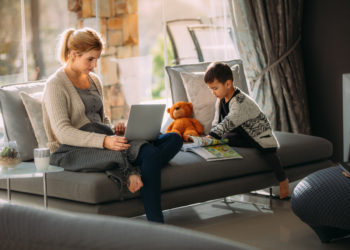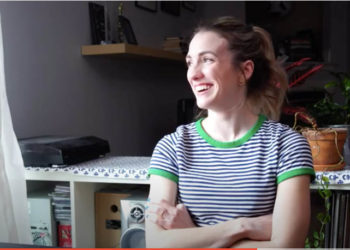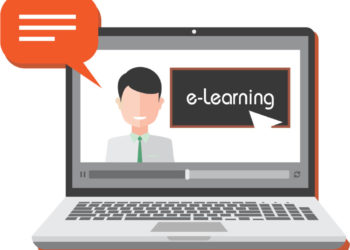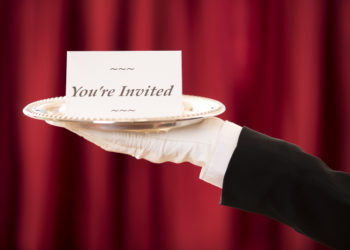With life changing so dramatically, so quickly, and for such a large portion of the global population, people are developing new habits, new practices, and new methods of managing their lives and our current situation. We at The Scholarly Kitchen recognize that there are many people around the world dealing with losses of family, friends, and income. There are also those in essential industries that are risking their lives to keep our respective countries going. We feel great sadness and regret for those experiencing loss and an inability to fully express our gratitude to those in essential roles.
We also feel it’s important to recognize that this sudden change in how we conduct our lives, combined with uncertainty about the future, is a source of anxiety and grief for almost everyone. We all manage that in different ways.
From binge watching Netflix, binge listening to audiobooks and podcasts, reconnecting with neighbors and old friends, Zoom happy hours or Zoom family game nights, to cooking, exercising, and gardening, we’re all figuring out how to get through our days and be productive in the new normal. Thanks to Charlie Rapple, some of us have a new game as well!
So this month we asked the Chefs: What are you doing that helps you get through your day? Below find our first set of answers, and Part 2 can be found here.
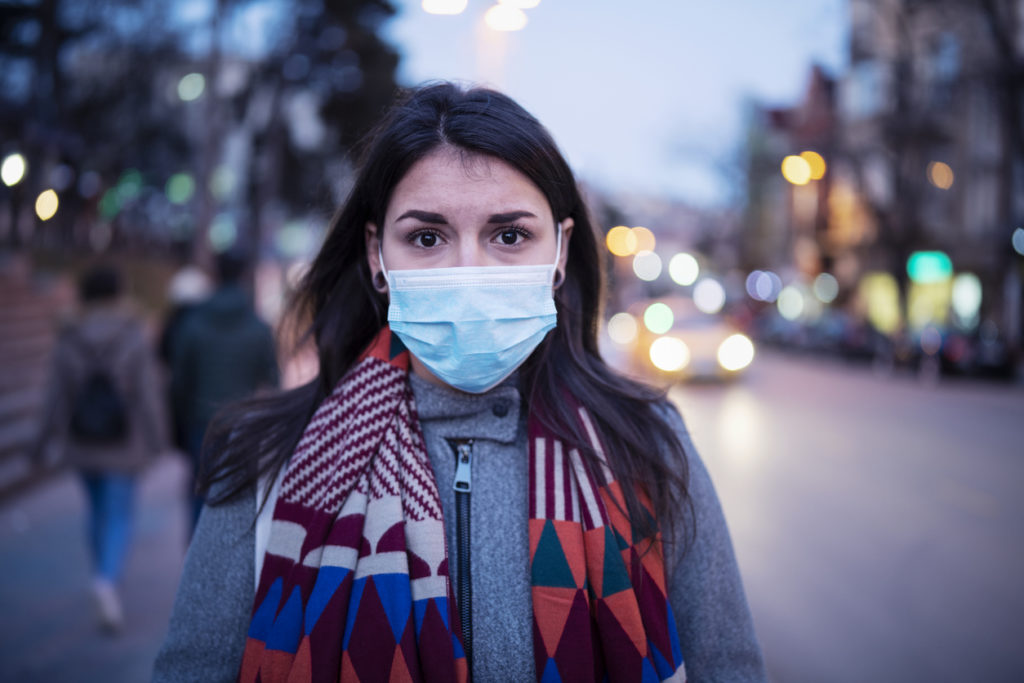
Lisa Hinchliffe: I am grateful that I am able to continue to work full time, being paid and receiving benefits, from home. I am painfully aware that not everyone has this privilege, particularly those who have been laid off, lost their small business, or must go out to work, often for minimal wages. It is a sobering reality. I have three strategies right now for both being engaged with the world while also maintaining personal health and well-being.
First, I limit my news consumption to specific and limited times of the day. Much of the news is repeated all day long and the continuous exposure is wearing and not particularly informative.
Second, I manage my work with to-do lists. I find things come to mind and slip away easily in times of stress. Writing things down means I remember to do things and seeing all the things I’ve finished helps me see that I am accomplishing things.
Third, as is my habit whenever I am at home, I cook. I take pleasure in making meals, whether perfecting old standbys or trying something I’ve never made before. As a result, I’m also improving my photography skills since social media (e.g., Instagram and Facebook) is where friendship lives right now and it is fun to share with others virtually until we can once again gather in person.
I manage my work with to-do lists. I find things come to mind and slip away easily in times of stress. Writing things down means I remember to do things and seeing all the things I’ve finished helps me see that I am accomplishing things.
Joe Esposito: I don’t think my involvement with scholarly communications gives me any expertise or a special point of view in dealing with the coronavirus tragedy beyond looking at reports of breakthroughs and cures with professional detachment.
David Smith: So this is a tough one to answer. I’m incredibly lucky in so many respects – lovely large house – plenty of space. Unusually for the UK, I also have a very respectable amount of land to call my own. And I live in a really very lovely bit of the countryside. Real easy for me to take my once a day outside exercise – perfectly possible to not see another human, let alone worry about distancing. Anyway, I’ve been gardening. We’ve inherited a place with the aforementioned large plot – and it’s full of things in various stages of benign neglect – so I’ve been working on them. Work-wise, trying to remember to take breaks. And using the time before and after the working day to get up and leave the home office behind, go do something else.
Anyway, I’ve been gardening. We’ve inherited a place with the aforementioned large plot – and it’s full of things in various stages of benign neglect – so I’ve been working on them.
So why then is it tough to answer? Well I keep thinking back to me, 20 years ago, just starting in this industry. Living in London, not just sarf of the river, but way east as well (Thamesmead, where they filmed A Clockwork Orange). And I shudder to think how a 20 year younger me would have coped – 1 bed flat, no garden, no balcony even, no communal gardens. Living on my own. In a brutalist lower level of Betjeman’s Metroland. I think I’d be finding it really effing hard right about now. And there’s a lot of folk like me 20 years ago – with this experience (or worse). I think about this a lot whilst I’m attacking the weeds. Some of my team are there; younger, living by themselves. And I know there’s folk really having the hardest of times.
You can contact me on Twitter – don’t hesitate. And if you are really having a hard time, Here’s some numbers for those of you in the UK: 116 123 is The Samaritans; You can text SHOUT to 85258 and for those under 35 who are struggling, there’s the Hopeline 0800 068 41 41 from Papryrus.
Stay Safe everyone.
Tim Vines: Time at home is pretty crunched at the moment, as we’re juggling “daycare” for our 5 year old, “school” for our 9 and 11 year olds, all the housework, and two full-time jobs (the scare quotes indicate that our efforts fall well short of the education they normally get).
The thing that’s getting me through my day is a long-term goal
The thing that’s getting me through my day is a long-term goal*. Late in 2018 I set myself the task of getting onto a competitive ultimate team and then improving to the point where I could try out for the Canadian national team in my age group (40+) without embarrassing myself. I made it into the practice roster for Mastadon (spelling intentional!) last year, but this year there’s no games or practices at all. Instead, I’m working on my fitness and my throwing; the latter involves going to a field and throwing discs as far as I can for half an hour. It’s very cathartic – my current best is 80 yards.
*Credit should also go to my partner, who despite having Covid for the last two weeks has kept everything moving forward remarkably well.
Charlie Rapple: Work-wise, my husband and I have firmly divided up the day so that we each have 5 clear work hours (i.e. without responsibility for our son). If we agree to take calls outside that window, it is our responsibility to find something to entertain him, and to continue overseeing him. So we have a firmly fixed routine and we don’t get to chop and change — essentially, we prioritize each other, rather than other people’s expectations. That consistency and clarity is helping me retain my sanity and productivity, and is also providing some stability for my son. In terms of home-schooling, I am taking the timetable and activities from my son’s teacher as suggestions rather than requirements. We do what we can.
So we have a firmly fixed routine and we don’t get to chop and change – essentially, we prioritize each other, rather than other people’s expectations.
Sometimes we go off-piste and follow his beautiful mind wherever it leads. Sometimes he gets to watch 2 hours of TV while I attend a virtual meeting; I at least try to make it something vaguely educational, and get him to explain it to me or write it up later. I “celebrate my own brilliance” in managing to achieve anything in my home-schooling shift, and keep firmly focused on everyone’s health and happiness (but, easy for me to say, with a 5 year old rather than a 15 year old).
Outside of work and parenting / schooling, I find that my exercise allowance makes a huge difference to getting me through the day. Fresh air and contemplative walking take the edge off the cabin fever. The rainbows, messages, and stuffed animals in everyone’s windows, and the caring / humorous / selfless ways in which both local people and business are responding to the situation, all remind me what a lovely community I live in. But when it boils right down to it, it’s the hilarious WhatsApp groups, memes, quizzes, and Zoom drinks with friends that are getting me through the day. Cheers!
The rainbows, messages and stuffed animals in everyone’s windows, and the caring / humorous / selfless ways in which both local people and business are responding to the situation, all remind me what a lovely community I live in.
Haseeb Irfanullah: About 17 months back, I left my last 9 to 5 job in my hometown of Dhaka, Bangladesh. Since then — as happens with an independent consultant, part-time university teacher, and occasional columnist — I have no working hours, no weekends per se. I sometimes have no job to do in the middle of a week; but sometimes have to work over a long-weekend and bank holidays to meet deadlines. Most of the time I am in my home; my laptop and smartphone being my office. I only go out if I have meetings with my clients, have workshops to attend, or have lectures to give at my university. I feel like a free soul — of course as much freedom as my engagements allow. Some of my friends told me they envy me. I can’t blame them, I envy myself!
As you can guess, things haven’t changed too drastically for me due to the ongoing “corona crisis”, except the “going out” part. It seems like I have been preparing myself for self-isolation. But, not going out for a month is a huge thing, even for an introvert like me. I have learnt a few new things during these self-quarantined weeks — took online classes using Facebook Live with my undergrad students on research design, for example.
I have learnt a few new things during these self-quarantined weeks — took online classes using Facebook Live with my undergrad students on research design, for example.
I have reoriented myself doing daily chores as domestic helpers are away due to lockdown. And, I have continued doing certain things more, like reading articles on topics of my interest and writing opinions and articles on them for newspapers and blogs. One thing has been a challenge though — avoiding social media, which is full of corona news, advice, frustrations, fears, confusions, prayers, and of course entertainment from certain world leaders.
Over the last few weeks, I have realized COVID-19 is a huge distraction from our normal lives. So, we need counter-distractions to keep ourselves sane. One month on, I am trying my best. What about you?
Karin Wulf: These days of the COVID-19 crisis are tough. Thank goodness my family is healthy and safe, so our days are fortunate by any reasonable measure. Yet the uncertainty, combined with the intensity of work, can still make for a pretty toxic cocktail.
Three things are getting me through.
One is reminding myself that what I say to my team about how, in this intense situation, “good enough is really good enough” has to apply to me, too. Should I confess? Even my contribution to this “Ask the Chef” feature is going to be “good enough” this month and rather than giving it a couple of drafts, or not sending it in because I only have a brief window to write it up, I’m offering up something that’s just good enough.
Second is the buoyancy of my kid, who is zooming his last semester in high school with admirable good cheer. The limits of that good cheer are equally helpful, like when he said very firmly that he just couldn’t “see anyone on a screen for at least another day.” Wow, do I relate.
I’m always an enthusiast of holding a book, turning the pages, appreciating the design, paper, and cover, but my appreciation is reaching new heights.
The third is reading. I usually start my mornings with at least 15 minutes of reading, though usually that’s history. The evenings now are very regularly for novels. Yes, my family is on screens a lot, including the requisite Netflix consumption. But we’re also all having a shared quiet time for reading every evening. I’m always an enthusiast of holding a book, turning the pages, appreciating the design, paper, and cover, but my appreciation is reaching new heights.
We’ll hear from more Chefs tomorrow, but now it’s your turn!
What are you doing that helps you get through your day?
Stay safe.
Discussion
1 Thought on "Ask The Chefs: New Normal Part 1"
Great contributions, thank You all.
BUT could You if a parent please claim a financial value for the hours you WORK intrafamilially? Be it caring, educating, home-schooling, or even singing with kids…. it’s valuable WORK to raise the next generation (#ParentingForFuture) and should no longer be exploited but adequately financially rewarded. Thanks again.
